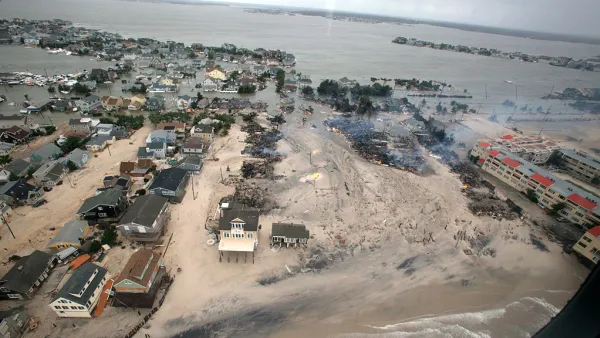Jonathan Nettler has lived and practiced in Boston, Washington D.C., San Francisco, New York, and Los Angeles on a range of project types for major public, institutional, and private developer clients including: large scale planning and urban design, waterfront and brownfield redevelopment, transit-oriented development, urban infill, campus planning, historic preservation, zoning, and design guidelines.
Jonathan is a member of the American Institute of Certified Planners (AICP) and serves on the Board of Directors for the Los Angeles section of the American Planning Association (APA) as the Vice Director for Professional Development. He is also active in local volunteer organizations. Jonathan's interests include public participation in the planning and design process, the intersection between transportation, public health and land use, and the ways in which new ideas and best practices get developed, discussed, and dispersed.
Jonathan previously served as Managing Editor of Planetizen and Project Manager/Project Planner for Ehrenkrantz Eckstut & Kuhn (EE&K) Architects. He received a Master of Arts degree in Architecture from the University of California, Los Angeles and a Bachelor of Arts degree in History from Boston University.
Home Prices May Be Rising In Cities But Many Suburbs Are Still Struggling
In desirable cities across America, home prices are well on their way back to pre-bust levels. But in areas like Chicago's southern suburbs, prices are down more than 40 percent from recent highs, and approaching were they were twenty years ago.
Is Your Commute Killing You?
Though research has been piling up on the adverse health impacts connected with driving long distances every day, it turns out that no matter how you travel to work, "having a job far from home can undermine health."

The Era of “When, Not If,” Compels a New Approach to Waterfront Development
On the anniversary of Hurricane Sandy, ULI offers guidance on post-disaster rebuilding and building in anticipation of future disasters in a way that helps preserve the environment, boost economic prosperity, and foster a high quality of life.
Coming to a Backyard Near You: "Unprecedented Industrialization"
Across the United States, more than 15.3 million residents have become neighbors to a new gas or oil well since 2000. The fracking-based energy boom is bringing "unprecedented industrialization" to backyards throughout the U.S.
Want a Happier Healthier City? Bikes are a Bargain
Not only are car-oriented environments ugly, they're costly from an environmental, health, and public investment standpoint. Elly Blue finds that for comparative pennies, bike-friendly cities get happier, healthier, and less broke residents.

























